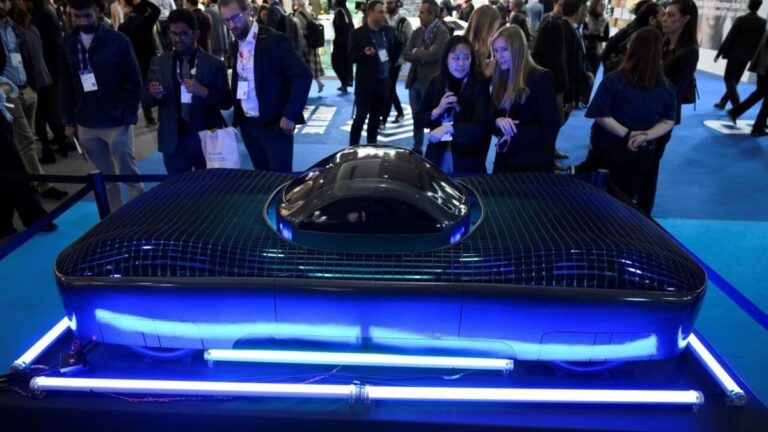Imagine a world where cars weave through traffic, your dog doesn't have to walk in the rain, and your laptop screen replaces your window. This future inched closer to reality at a recent technology showcase, announcing innovations such as the world's first real flying car, a robot dog, and a transparent laptop. These advances promise to blend the lines between science fiction and concrete reality and redefine our daily lives.
The sky is no longer the limit
Aleph Aeronautics has taken a major leap forward in making flying cars part of the urban landscape. With a street-friendly design, the prototype promises a seamless transition from road to air. The vehicle boasts electric propulsion and vertical takeoff capability and is cleared by the US Federal Aviation Administration. With a range of 110 miles and space for two, it's not only a novelty, but a glimpse into the future of personal transportation. The car, scheduled to go into production in 2025, has already attracted nearly 3,000 loyal customers, each investing her $300,000 for the privilege of owning a piece of Tomorrow. I'm eager to do it.
A digital companion for the 21st century
Meanwhile, Tecno Mobile is redefining pet ownership with its robot dog Dynamic 1. Inspired by his faithful German shepherd, this AI-powered companion can follow voice commands, perform tricks, and even climb stairs without having to be walked or fed. Its purpose is to deliver the joy of owning a pet without the responsibility that comes with it. In addition to this, Lenovo's transparent laptop prototype presents a new frontier in computing. A 17.3-inch glass screen with adjustable transparency allows users to enjoy privacy and a futuristic user experience. This device challenges our traditional notions of personal computing and hints at a future where technology is not only functional, but discreetly integrated into our lives.
Enriching lives with innovation
This showcase wasn't just about convenience or novelty. It also highlighted the potential of technology to address societal challenges. Fedor, an AI-powered doll designed for seniors, provides companionship while reminding users to take their medications and alerting parents in case of an emergency. This Korean innovation is a testament to the role of technology in promoting independence and well-being for older adults. Similarly, Dutch startup Whispp's AI-based calling app represents a major advance for people with speech disorders. By converting impaired voices into the user's natural voice in real time, it promises to bring back the simple pleasure of conversation to those who have lost it.
As we stand on the brink of these technological advancements, it is clear that the future holds unparalleled potential to transform our lives. From flying cars that promise an escape from traffic jams to digital companions that provide comfort and support, these innovations are asking us to rethink the limits of what's possible. And as we navigate this exciting frontier, one thing is certain. The future doesn't just come. here it is.


